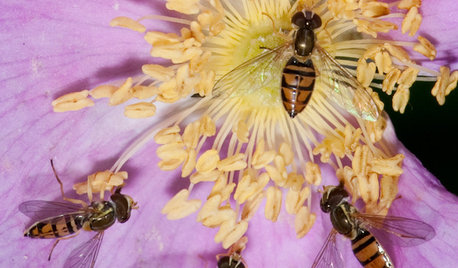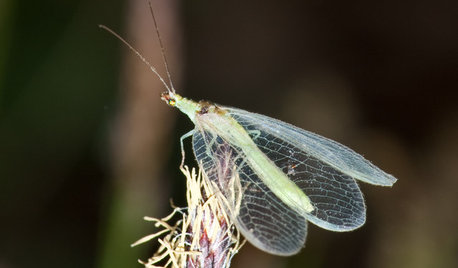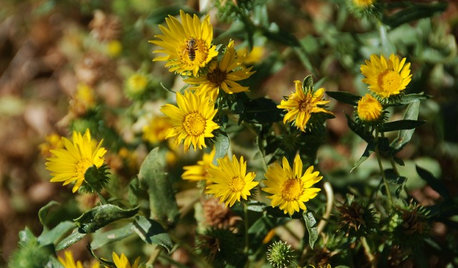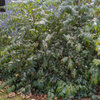Insect Damage and control
defrost49
12 years ago
Related Stories

GARDENING GUIDESOrganic Matters: Thwart Insect Pests With Trap Crops
Add a few sacrificial plants to your garden to lure insects away from the harvest
Full Story
WINDOW TREATMENTSA Surefire Way to Prevent Sun Damage Indoors
Why let light ruin your furniture, floors and artwork, when the solution could be as simple as applying high-quality window film?
Full Story
GARDENING GUIDESThis Fly Is One of the Most Beneficial Insects Around
Meet the syrphid fly, a colorful pollinator that also beats chemicals for controlling aphids and other garden pests
Full Story
GARDENING GUIDESLook Out for Lacewings: Beneficial Insects Coming to a Garden Near You
Lacewings are delicate insects that produce alligator-like, hungry offspring that devour aphids and other garden pests
Full Story
GARDENING GUIDESGreat Design Plant: Helianthus Maximiliani Attracts Beneficial Insects
Maximilian sunflower’s striking yellow flowers light up the fall landscape and attract pollinators and beneficial insects at a crucial time
Full Story
GARDENING GUIDESGreat Design Plant: California Grindelia Species for Beneficial Insects
Use gum plants as reliable summer bloomers and to provide habitat for California native bees, butterflies and other beneficial insects
Full Story0

DISASTER PREP & RECOVERYRemodeling After Water Damage: Tips From a Homeowner Who Did It
Learn the crucial steps and coping mechanisms that can help when flooding strikes your home
Full Story
HOME TECHSwitch On the Phone-Controlled Home
Lock your front door from afar, let your thermostat set itself and more when you use your phone as a control device
Full Story
HEALTHY HOMEWhat to Know About Controlling Dust During Remodeling
You can't eliminate dust during construction, but there are ways to contain and remove as much of it as possible
Full Story
ARCHITECTUREModern Homes That Control the Sun
See architecture that creates shade and manages temperatures — and offers some much-needed visual escapism
Full StoryMore Discussions








littleonefb
prairiemoon2 z6b MA
Related Professionals
Beachwood Landscape Architects & Landscape Designers · Grand Haven Landscape Architects & Landscape Designers · Rancho Cordova Landscape Architects & Landscape Designers · Buford Landscape Contractors · Salem Landscape Contractors · Hayward Landscape Contractors · Longmont Landscape Contractors · Mission Viejo Landscape Contractors · Tavares Landscape Contractors · Waltham Landscape Contractors · Algonquin Decks, Patios & Outdoor Enclosures · Harrisburg Decks, Patios & Outdoor Enclosures · Hendersonville Decks, Patios & Outdoor Enclosures · Oswego Decks, Patios & Outdoor Enclosures · West Bloomfield Township Decks, Patios & Outdoor Enclosuresdefrost49Original Author
terrene
defrost49Original Author